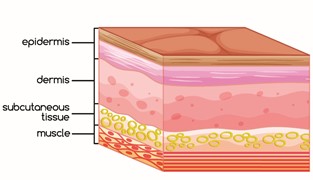Skin Concerns and Treatments
The skin is your body’s largest organ and it covers your whole body surface area and serves many physiologic functions. The skin is the first line of defense against microbes, and it plays an important role in regulating body temperature, transmitting all types of touch sensations that allow us to feel the world around us.
A cosmetically appealing skin is one of the top concerns of men and women who try to look their best. A young-looking, wrinkle-free, and clear skin sounds very pleasant, but unfortunately, most of us are not blessed with the genes to take our healthy skin for granted. Many skin conditions and imperfections can become frustrating and make us lose confidence in our looks.
Thankfully, surgeons and doctors have developed many techniques for people like us to help remove imperfections and restore radiant clear skin. Most common skin conditions are now treatable by medications, laser, or minor surgical procedures. Our plastic surgeons are some of the best in Australia, and they are dedicating to helping men and women restore their skin glow. They offer treatment for many conditions, from acne to skin cancer and everything in between.
It is important to know a little bit about the anatomy of the skin and some common conditions that might affect it if you’re seeking treatment. This will help you understand what you have and will make your doctor’s explanation even clearer.
What are the different types of skin?
You’ve probably heard by now that each person has a different “type of skin” that makes them either more or less likely to develop certain conditions. Here are some of the common skin types that doctors have classified:
- Normal skin: Skin that is not too sensitive, no excessive imperfections, has pores that are barely visible, and appears radiant is considered normal skin.
- Dry skin: People who have dry skin may have nearly invisible pores, visible lines, red patches, less elastic skin, and a dull rough appearance.
- Oily skin: This type of skin is characterized by large pores, shiny complexion, and an above-average number of pimples, blackheads, and whiteheads.
- Sensitive skin: People who have sensitive skin frequently complain of redness, itching, burning, cracking, and dryness.
- Combination-type skin: Some areas of your skin might be dry others oily, so you’ll have a mix of both skin type characteristics.
Genetics, where you live, and your eating and drinking habits can all have a role in determining which skin type you have.
What are some common skin concerns?
Here’s a list of some common Skin Concerns that you might want to know more about:
Skin Imperfections
- Moles: They are benign pigmented skin growths that usually appear in childhood and persist till adulthood. Almost everyone has them.
- Scars: These happen after any skin injury, whether surgical or traumatic. They’re a normal part of skin healing.
- Warts: These are usually caused by the human papillomavirus (HPV), and they are skin outgrowths that can occur anywhere in the body.
- Skintags: localised excess loose skin normally caused by excessive rubbing or wear
- Wrinkles: Consider Anti wrinkle injections like Botox
- Loss of Facial Volume: consider Dermal Fillers
- Unsightly Scars: For unsightly scars or keloid scars consider Scar Revision Surgery
For more information about Mole or Cyst removal surgery by Mr Gittos visit the page
For more information about Scar Revision Surgery by Mr Gittos visit the page
Skin Conditions
- Rash: It’s a very broad term that can apply to nearly any skin change. It’s commonly used to refer to red skin patches.
- Dermatitis: Also a broad term used to describe skin inflammation for any reason. One type is eczema.
- Acne: It’s the most common skin condition in humans, and nearly all of us will have it at some point.
- Rosacea: It’s a very common condition characterized by chronic redness of the skin and facial flushing.
- Skin abscess: Also referred to as boil or furuncle. It’s usually caused by a microbe, where the immune system attacks it forming a collection of pus that can bulge under the skin.
Skin Cancers
- Melanoma: It’s an aggressive type of skin cancer that starts from melanocytes (pigment cells). Take action – immediately see a doctor or surgeon.
- Squamous cell carcinoma (SCC): It’s less common than BCC, and it usually develops in areas that are frequently exposed to sunlight
- Basal cell carcinoma (BCC): It is the most common type of skin cancer, and usually it’s localized and not very dangerous
- Seborrheic keratosis: It’s a benign pigmented skin lesion that can be itchy sometimes.
- Actinic keratosis: It’s a precancerous lesion that looks like a scaly bump on the skin
For more information about Skin Cancer Surgery by Mr Gittos visit the page
Different skin treatment options for Skin Concerns
Here’s a list of commonly prescribed medications and medical procedures used to treat different skin conditions:
- Cosmeceuticals: Skincare products with active ingredients that can help to improve your skin
- Corticosteroids: These can be either injected directly into the skin area being treated or applied as a cream to treat different conditions like scars or rashes.
- Cryotherapy: The use of liquid nitrogen to freeze some skin growths and remove them. It’s commonly used to remove warts.
- Laser Treatments: Laser machines use light energy to remove skin lesions, remove imperfections, rejuvenate the skin, reduce wrinkles, and restore your homogeneous skin tone.
- Skin biopsy: It’s a test where your doctor removes a piece of the skin lesion and sends it to the lab to know what it is
- Surgical excision: It’s a minor in-office surgical procedure in which the surgeon removes the whole skin lesion using surgical instruments. This can be used to remove warts, moles, skin tags, and even skin cancer.
Medical Sources and Further Reading
- Stanford Children’s Health on Anatomy of the Skin
- WebMD on Skin Problems & Treatments Health Center
- National Skin Care Institute on Skin Types
Understanding the anatomy of the skin
The skin is mainly made of three layers:
- The epidermis: This is the most superficial layer of the skin. It’s made of skin cells that are tightly bound together creating a waterproof outer layer and protecting our body from foreign invaders. This layer is responsible for skin tone, where the skin pigment (melanin) is produced by special cells called melanocytes.
- The dermis: This is a thick layer of connective tissue that’s directly beneath the epidermis. Sweat glands and hair follicles develop in this layer.
- The hypodermis: This is a deep layer of subcutaneous tissue mainly made of fat and connective tissue. Blood vessels mainly run in this layer.
Underneath all these three layers are our muscles.
Complications and Risks of Skin Surgery
Skin Cancer and Scar Revision surgery incurs risks and complications like all surgery. Mr Gittos will make you aware of potential complications during your consultation. This includes anaesthesia risks, bleeding (Hematoma), infection, wound healing, deep vein thrombosis, scarring and numbness. Always stay informed and healthy, do NOT smoke before or after your procedure and read & understand your risks of surgery.
Finding a Skin Surgeon for Skin Concerns in London UK
For many men & women in United Kingdom suffering from unsightly scars or skin cancer, having surgery is a life-changing experience. There are many qualified doctors and plastic surgeons, but it is always best to find one who is experienced in effective skin surgery procedures. Find an experienced plastic surgeon who you feel comfortable with and have a look at their online reviews to find out what their past patients say.
Why Choose Mr Mark Gittos for your Skin Concerns?
Dr. Mark Gittos is a plastic surgeon in London, United Kingdom who has extensive experience in skin surgery. Mr Gittos has a current FRACS membership and significant skin surgery experience. Call us to book an appointment or to learn more about the top services we offer.
Make an Appointment for a Skin Concern Consultation with Mr Gittos
If you would like a skin concern consultation then please call to make an appointment with Dr. Mark Gittos in London, United Kingdom. Come visit us to get a full assessment of your condition and learn about your treatment options.
About Mr Mark Gittos FRACS (Plast) – London Plastic Surgeons
Practice locations in London & Essex, UK and Auckland, New Zealand.
Mr Mark Gittos offers high quality, natural-looking cosmetic surgery results and is highly experienced in Breast, Body and Face Surgery having performed over 4000 Surgeries in the last 26 years.
With world-wide expertise Mr Gittos is an expert in breast, face and body surgery for men & women.
Mr Mark Gittos is a leading Specialist Plastic Surgeon and operates a practice in London UK and Auckland New Zealand. His practice focuses on both surgical and non-surgical procedures, each designed to help restore, improve or change a physical characteristic or problem. The first step in every case is to talk through your personal requirements and explore all the options, before deciding on the most effective solution.
Naturally, before any treatment is begun, we will explain clearly the advantages and risk factors; so that you have the information you need to make an informed decision that is best for you. Visit the practice to find out more.

NEXT STEPS
Do your Research
- Read the Website and Blogs relevant to your procedure
- Browse our Frequently Asked Questions including how to choose a Surgeon for your procedure
- Download the Guides to Surgery
What to Bring to your Plastic Surgeon Consultation
- Bring a friend or relative to help discuss the information and your choices
- Take lots of notes and read the documents provided thoroughly
- Want more information before scheduling your consultation?
Book your Initial Surgery Consultation
- A Referral from your GP or specialist is helpful but NOT essential – you can have a consultation without a GP Referral
- Email us or Call in London on 07557 858156 to arrange your surgeon consultation appointment.
- Secure your consultation with Mr Gittos by paying the Consultation Fee in advance
- A consultation with Dr Gittos is £195.
Please contact us to arrange to book a consultation or to speak with our Patient Care Advisor.
Send an enquiry form today or UK phone 07557 858156 during Clinic Hours


